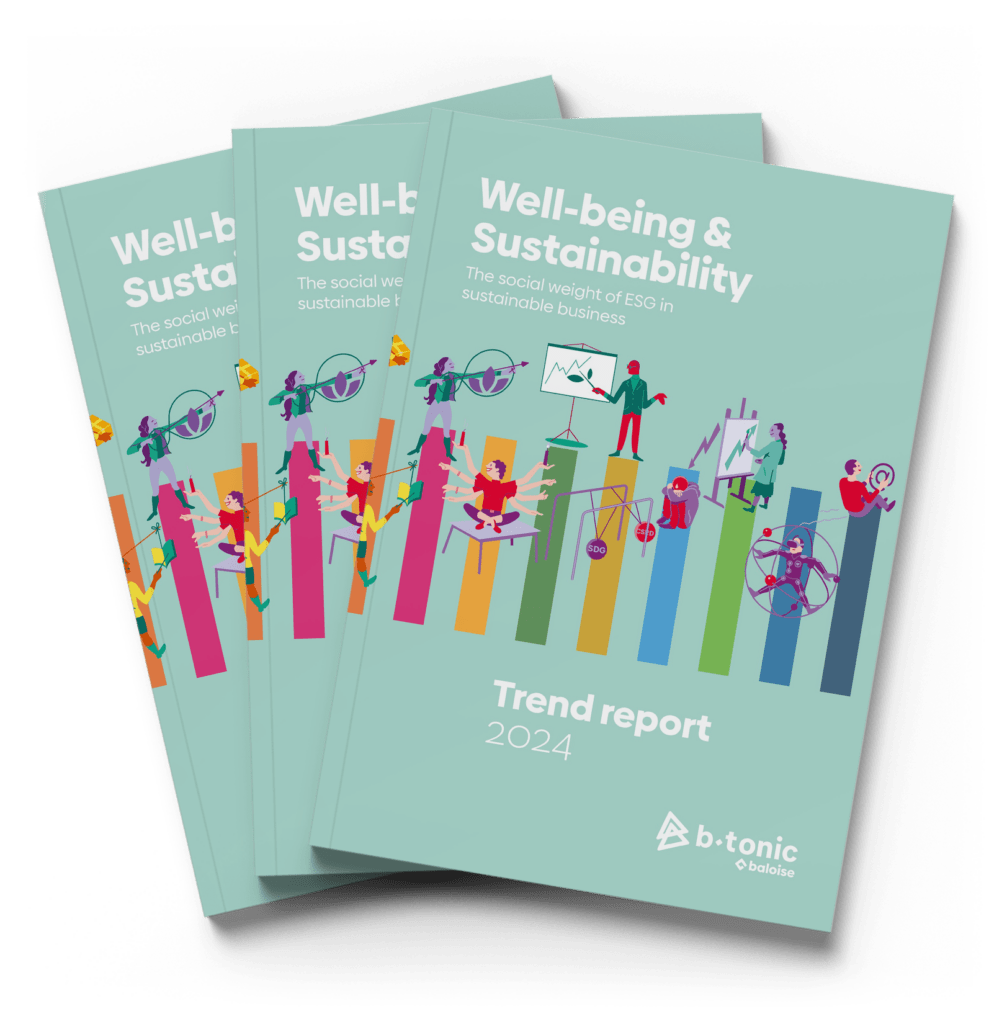In our Trend report 2023 ‘Wellbeing & Sustainability’, we draw the roadmpa towards a successful and sustainable future for companies. Trendwatcher Herman Konings translates this future to the present by means of remarkable international tendencies in this blog series.
In this blog: A glimpse of the future of mental health care.
Due to rising levels of anxiety and a growing awareness among young people about mental health issues, a culture of openness is arising. Fear has surpassed depression in the last few years as the most frequent reason for students looking for help. A survey of Girl Up, a UN organisation among 3.500 girls in seven countries, shows that 75% of those girls wants a more open dialogue about mental health. Celebrities such as Billie Eilish, Justin Bieber and Simone Biles stimulate this. All of them have spoken about their demons in public.
Yamikawaii
Previous generations dealt with mental health by ignoring the issue and allowing taboos to dictate policy (and treatment). Today, however, teenagers share their stories online and set up organisations to address these issues. In Asia, where taboos are going strong, young people found communities that attempt to remove sad trains of thought out of the doghouse. Yamikawaii is, for instance, a Japanese subculture that uses a ‘sickly fun aesthetic’ – syringes, pills and bondage gear included – with the intention to discuss emotional pain.
In China we see something similar. Introverted teenagers feel closely connected with a Finnish cartoon figure, Matti, who blushes a lot and is awkward in social situations. He struggles to praise himself, is not good in small talk and is scared to sit next to someone in the bus. Matti is the unassuming main character in Karoliina Korhonen’s cartoon Finnish Nightmares. The character is a stereotype of the Finns, but has conquered many hearts among introverted people in Finland. But also – thanks to the worldwide web – in China. Matti even inspired a new term in Mandarin: ‘jingfen’ (精芬), which means ‘spiritually Finnish’.
Long waiting lists
Youth psychiatry departments all over the country, as well as adolescent and student psychologists, report longer, unprecedented waiting lists. The Flemish Association of Clinical Psychologists warned in 2021 that more and more Flemish psychotherapists were forced to close their waiting lists. In other words, that meant that the last admitted clients had to wait approximately a year for an intake interview.
In our country, the mental health professional has to deal with heavy blows due to covid. The need chased away the shame. As a consequence, many people could only realise – and proved to be quite willing to share this insight with the rest of the world – that brave step towards mental health care was not too bad. That it is nothing to be ashamed of! Because of the crisis, there is a very high demand on the mental health caregivers. The media have frequently mentioned and discussed this. That ensures that professional psychological help becomes even more easily less unusual and odd.
What also helps is that a lot of top athletes in recent years also (want to) attribute their successes in part to sports psychologists and mental coaching. Also on tv, reality and dating shows refer more and more to psychologists. This also benefits the sector of professional mental health care (and thus society’s mental health). All in all, it can be proudly reported that the mental health sector is on the rise, both in terms of the number of requests and applicants for help and the number of applications for professional training in clinical psychology and psychiatry.
Discover the future of mental health care with increased openness, new approaches and challenges. Read our Trend report 2023 ‘Well-being & Sustainability’ .




